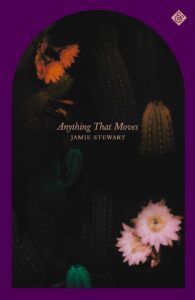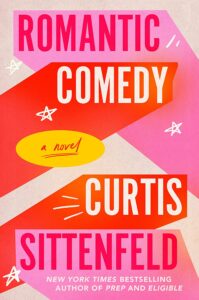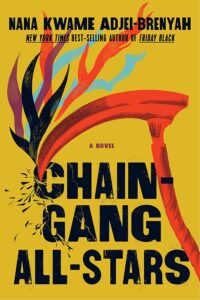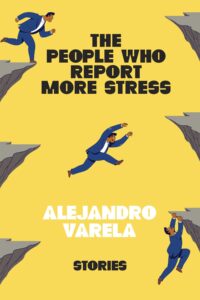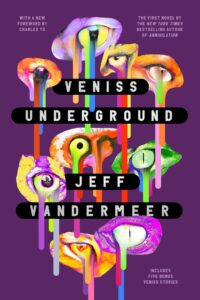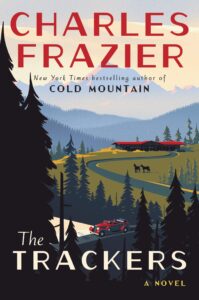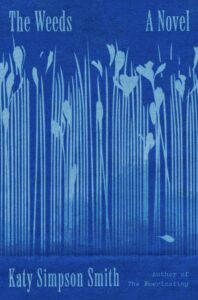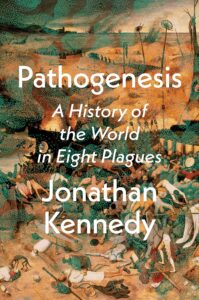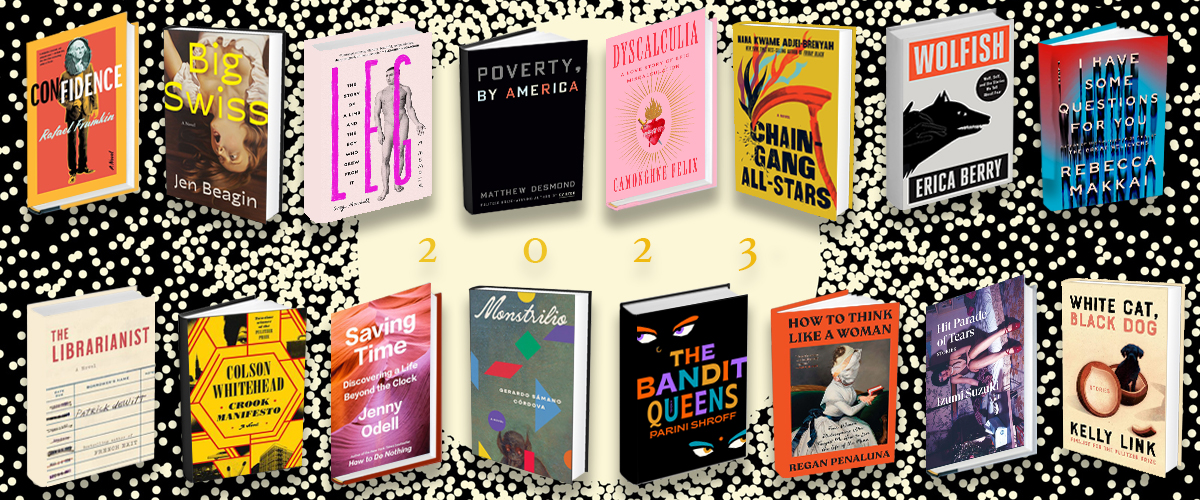
Lit Hub’s Most Anticipated Books of 2023
218 Books We’re Looking Forward to Reading This Year
APRIL
Jamie Stewart, Anything That Moves
And Other Stories, April 4
Yes, that would be Jamie Stewart of Xiu Xiu, the moody experimental rock band that may or may not have soundtracked some of my most tragic college midnights. Appropriately, it is “a memoir told in 33 outrageous hook-ups” that its publisher describes as “an extraordinary, cringy, unputdownable miniature epic, burning always with radical and often shocking self-criticism.” As I would have put it at the peak of my Xiu Xiu fandom: yesssssssssssssssssssssss. –ET
Curtis Sittenfeld, Romantic Comedy
Random House, April 4
I am here to read anything Curtis Sittenfeld writes, including this sweet little rom-com about an SNL–esque comedy writer who pokes fun at the phenomenon of average-looking male comedians dating out of their league (AKA, the Pete Davidson effect), only to feel sparks with the show’s latest host and musical guest, a hottie who (surprise, surprise) exclusively dates models. More average-looking funny ladies with himbos, please! –ES
Nana Kwame Adjei-Brenyah, Chain-Gang All-Stars
Pantheon, April 4
I stayed up far too late reading just one more chapter of this blazing debut novel from Friday Black author Adjei-Brenyah. Set in a near-future United States where the extreme inhumanity of the private prison system has produced Criminal Action Penal Entertainment (CAPE)—a gladiatorial sports league/reality television juggernaut wherein incarcerated men and women fight to the death for the chance to eventually, maybe, win freedom.
Lovers Loretta Thurwar and Hamara “Hurricane Staxxx” Stacker are the worshiped stars of the circuit, Mari is the abolitionist daughter of one of CAPE’s recently murdered veteran fighters, and “Jungle” Craft and “Singer” Hendrix are two ultra-violent felons, broken and remade monstrous by the brutality of their prison conditions. A damning indictment of mass incarceration, systemic racism, and the grotesqueries of unfettered American capitalism, Chain-Gang All-Stars is also a breathless dystopian thriller. It will make one hell of a prestige miniseries. –DS
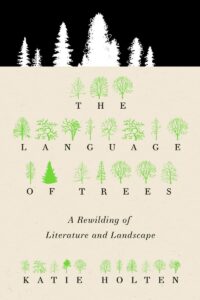
Katie Holten, The Language of Trees: A Rewilding of Literature and Landscape
Tin House, April 4
Irish artist Katie Holten is an environmental activist whose ecological art centers the anthropocene. “At the root of her practice is a commitment to study the inextricable relationship between Humans and Nature, between organic systems and human-made systems.” I love her Tree Alphabet, which showcases “trees,” her bespoke font that she’s also made available to download. Her new book, The Language of Trees, uses “trees” to translate a compendium of well-known, loved, lost and new writing—it will be an unmissable art object that I’m really looking forward to. –EF
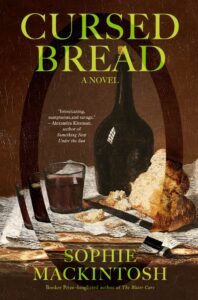
Sophie Mackintosh, Cursed Bread
Doubleday, April 4
I loved Mackintosh’s The Water Cure and Blue Ticket, so I was absolutely going to read her next novel even if it didn’t have one of the best titles of the season, and even if it wasn’t based on a real-life mass poisoning of a French village in the 1950s, and even if it hadn’t been described as “an erotic fable of transformation.” But it does, and it is, and it has been, and I am, forgive me, finding myself very hungry for bread. –ET
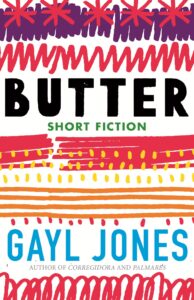
Gayl Jones, Butter: Novellas, Stories, and Fragments
Beacon, April 4
The return of Gayl Jones (once memorably described by Calvin Baker as “The Best American Novelist Whose Name You May Not Know.”) has been one of the most heartening publishing stories of recent years. Like busses, you wait forever for a new Gayl Jones book to arrive and then two (or in this case, three) come at once. 2021’s Palmares, the author’s first published work in over two decades, was met with critical acclaim and a nomination for the 2022 Pulitzer Prize. Last year’s The Birdcatcher also garnered strong reviews and was a finalist for the National Book Award. Hot on the heels of those two novels comes Butter, a wide-ranging collection of novellas and stories, “in a range of settings and styles, from the hyperrealist to the mystical, in intricate multipart stories, in more traditional forms, and even in short fragments.” April can’t come soon enough. –DS
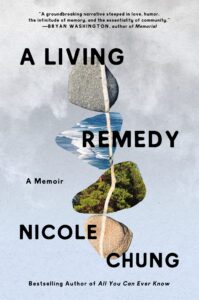
Nicole Chung, A Living Remedy
Ecco, April 4
The HarperCollins Union has been on strike since November 10, 2022. Literary Hub stands in solidarity with the union. Please consider donating to the strike fund.
Nicole Chung’s debut memoir, All You Can Ever Know, was a national bestseller, and this one also stands to spark a major and essential conversation. Here, she writes about the guilt of ascending social class (and realizing that your childhood version of “middle class” was not, in fact, middle class), the life-or-death consequences of financial insecurity and our broken medical system, and the grief of being separated from a dying parent during the pandemic. Chung excels at excavating both the personal and the systemic; I can’t wait to read her latest. –ES
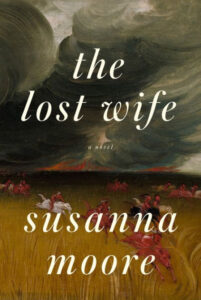
Susanna Moore, The Lost Wife
Knopf, April 4
After ten years, we’re finally getting a new novel by my personal tormentor Susanna Moore—and it’s a Western. That is, it’s a “brilliantly subversive tale of the conquest of the American West”: the story of a white woman who gets caught in the middle of the Sioux Uprising of 1862. I can only expect that it will be absolutely devastating in more ways than one. –ET
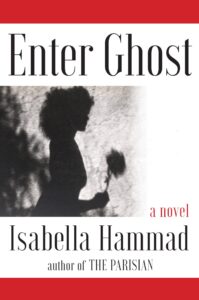
Isabella Hammad, Enter Ghost
Grove, April 4
If you liked The Parisian, you’ll love Enter Ghost. From Plimpton Prize winner and 5 Under 35 honoree Isabella Hammad, this is the story of a woman on the brink. Sonia is an actor. She’s been off chasing her dreams, but when her relationship with a director ends, she returns home to process her grief and make sense of her life. While staying with her sister, Haneen, Sonia grapples with the idea of home and how to find your proper place in it after a long period away. She also falls in with a new crowd: a theater troupe putting together a production of Hamlet in the West Bank. In Enter Ghost, Isabella Hammad’s characters contend with displacement, ancestral home, authenticity, and the shimmering possibility of finding yourself in unlikely places. Sisterhood, soul-searching, and Shakespeare—what more could you ask for? –KY
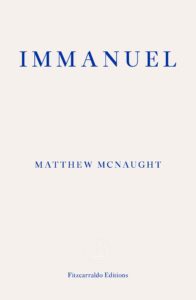
Matthew McNaught, Immanuel
Fitzcarraldo Editions, April 4
Immanuel, which back in 2016 was the winner of the inaugural Fitzcarraldo Editions Essay Prize, is now a book-length work of nonfiction “about faith, doubt and radical religion,” inspired by McNaught’s experiences growing up in an evangelical Christian community, and watching his friends become radicalized, moving to Nigeria to become disciples of charismatic millionaire pastor TB Joshua. Sounds absolutely fascinating. –ET
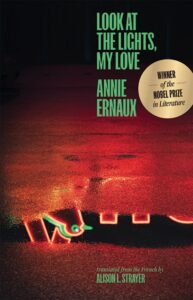
Annie Ernaux, tr. Alison L. Strayer, Look at the Lights, My Love
Yale University Press, April 4
Listen, there’s something poetic about big chain grocery stores. (If you’ve seen the Joe Pera Talks with You episode “Joe Pera Takes You to the Grocery Store,” you know what I’m talking about.) A setting that’s been largely ignored in literature, leave it to newly minted Nobel Laureate Annie Ernaux to find much to meditate upon inside those hideously florescent-lit aisles. –ES
Alejandro Varela, The People Who Report More Stress
Astra House, April 4
Varela’s debut novel, The Town of Babylon, came out just last year and was a finalist for the National Book Award—so you know he’s got chops. His second book is “a collection of interconnected stories brimming with the anxieties of people who retreat into themselves while living in the margins, acutely aware of the stresses that modern life takes upon the body and the body politic.” I already love Varela’s sense of humor and way of approaching the world, and I’m sure I will love these too. –ET
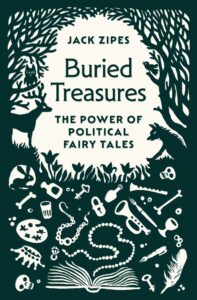
Jack Zipes, Buried Treasures: The Power of Political Fairy Tales
Princeton University Press, April 4
Zipes is one of our most venerable and important fairy tale scholars; a new book from him is always something to anticipate for those interested in the form. In this volume, he highlights political fairy tale authors and illustrators from the 19th and 20th centuries, artists who “used their remarkable talents to confront political oppression and economic exploitation by creating alternative, imaginative worlds that test the ethics and morals of the real world and expose hidden truths.” –ET
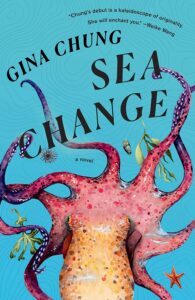
Gina Chung, Sea Change
Vintage, March 24
This stellar debut novel opens on a horny octopus. I feel like this blurb could end there, because you’re probably sold, but I’ll keep going. Sea Change is the story of Ro, a thirty-something year-old woman, adrift in life. She works at a mall aquarium, tending to the aforementioned sea creature, a giant Pacific octopus named Dolores. Dolores proves to be excellent company, especially since Ro’s boyfriend has abandoned her for a volunteer expedition to Mars and her best friend seems to be growing up without her. But one day, Dolores is sold to a private aquarium, and Ro has to come to terms with her life in the face of yet another loss. This one is particularly devastating because Dolores also serves as a reminder of Ro’s father, a marine biologist who disappeared in the Bering Vortex (where Dolores is from).
Gina Chung writes about the marvels of marine life with such intense care and beauty. For instance, I have learned that the Bering Vortex is an especially terrifying part of the ocean that has fascinated scientists because it produces creatures that can thrive in unwelcoming conditions, which is to say that much like Dolores, Ro is a character that has fought for her own survival, and it is an absolute pleasure to cheer her on. This is Gina Chung’s first book, but there is a wealth of her fiction online. I recommend starting with “Mantis,” a perfect showcase of her ability to distill the facts of the natural world into something hilariously human. Sea Change is sure to make a splash! (Sorry.) Get ready to dive in! –KY
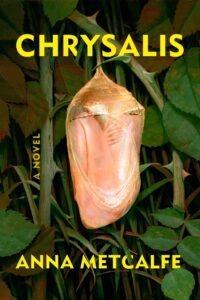
Anna Metcalfe, Chrysalis
Random House, April 11
Chrysalis poses the important and metaphorical question, “what happens when a woman dares to take up space?” The woman in question has decided to physically alter her body, growing bigger and stronger through workouts and diet and supplements—her friends and family watch, and wonder, and worry, as the transformation unceasingly takes place. Unquestionably due to trauma, her urge to grow strong is at first understandable, but leads to something more mysterious and shape-shifting as she becomes a guru figure on social media to thousands of acolytes. Taking on questions of femininity and expectation, as well as social media and its ability to make a cult leader of anyone, Chrysalis raises as many questions as it answers about our society and our place within it. –JH
Izumi Suzuki, tr. Daniel Joseph, Sam Bett, Helen O’Horan, and David Boyd, Hit Parade of Tears
Verso, April 11
Last year, Verso introduced the English-speaking world to the genius of Izumi Suzuki with the publication of Terminal Boredom, a collection of stories that are hard to pin down. A little speculative, a little punk, a little chaotic—all singular in their voice and vision. In this new collection, there will be cheating husbands, score settling, alternate timelines, bored teens, and space pirates. One way to describe her writing might be unhinged, but I think another applicable word is freeing. What a thrill it is to see that more of her stories are coming down the pipes. –KY
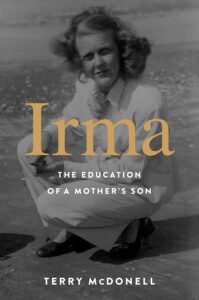
Terry McDonell, Irma: The Education of a Mother’s Son
Harper, April 11
The HarperCollins Union has been on strike since November 10, 2022. Literary Hub stands in solidarity with the union. Please consider donating to the strike fund.
McDonell’s The Accidental Life was an insider’s look at what it took to be an editor at Rolling Stone, Esquire, and Sports Illustrated and to work with writers like Hunter S. Thompson and David Carr. Full of wisdom for editors and writers alike (such as how to deal with rejection), it was a wonderful, gossipy, fun read. In his new memoir, Irma, McDonell looks back at his mother—a twenty-five year old widow who picked up their lives and moved to California for a new life. This promises to be a stunning portrait of a woman “who built the life she wanted as she raised her son to be the kind of man and father he had longed for but never knew.” –EF
Jeff VanderMeer, Veniss Underground
MCD, April 11
Jeff VanderMeer hive, rise up! If you loved Annihilation, Borne, Dead Astronauts, and Hummingbird Salamander, you’re going to want to read Veniss Underground. Prepare to be transported. Veniss is a surreal city, but what’s underneath is even more fantastical: a mysterious maze of tunnels. This is a world where Living Artists create with biological material. It’s also a world where humans are recycled. Our guides are Nicholas, a just-okay Artist; his twin sister, Nicola; and Nicola’s former lover. Veniss Underground is actually the very first novel by this beloved writer, being reissued with a foreword by National Book Award winner Charles Yu. With a writer as prolific as Jeff VanderMeer, I always find it fun to go back and read the early work, to see the questions they were always trying to answer, the first seeds. –KY
Charles Frazier, The Trackers
Ecco, April 11
The HarperCollins Union has been on strike since November 10, 2022. Literary Hub stands in solidarity with the union. Please consider donating to the strike fund.
The latest novel from the bestselling author of Cold Mountain follows Val Welch, a painter in Depression-era America, who landed a job creating a mural for the new post office in Dawes, Wyoming. There, he meets John and Eve Long, a mysterious couple with whom Val quickly becomes enchanted, and—when Eve disappears—hopelessly entangled. –ET
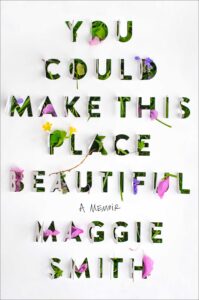
Maggie Smith, You Could Make This Place Beautiful
Atria, April 11
I’ve had Maggie Smith’s poem “Good Bones” running through my head on a loop since I read it years ago, its ending such a promise, a desperate wish: “This place could be beautiful / right? You could make this place beautiful.” I have no doubt I will be just as struck by her prose as her poetry, and can’t wait to get my hands on her new memoir. Tackling the dissolution of her marriage, the hard, lonely grief of that heartbreak, and the tremendous task of rebuilding a life, You Could Make This Place Beautiful promises to both devastate and heal, whether you’re going through a breakup or life-change, or whether you are simply attuned to the fact that at any moment, life as we know it can turn on a dime. Of all people, I trust Smith to lead us through the wreckage, through the fixer-upper, acknowledge the suffering, and lead us to new beginnings and new life. –JH
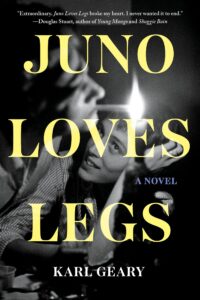
Karl Geary, Juno Loves Legs
Catapult, April 18
I was fortunate enough to recently get my hands on an early copy of this beautiful, aching sophomore novel by Karl Geary, which follows two young, working-class misfits in 1980s Dublin as they try to survive, and find joy, in a world that rejects and abuses them at every turn. Juno Loves Legs is a gorgeous, devastating ode to the sustaining power of friendship, as well as exquisitely atmospheric portrait of a city. A great Dublin novel. A great novel, period. –DS
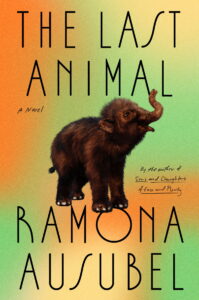
Ramona Ausubel, The Last Animal
Riverhead, April 18
I’ve been a fan of Ausubel’s big-hearted, finely crafted, magic-tinged books since 2012’s No One is Here Except All of Us; a new novel from her is always a reason for celebration. And The Last Animal sounds exactly right: a woman takes her teenage daughters with her on a scientific expedition to Siberia, where they discover a preserved baby mammoth in the ice. Thus kicks off a novel that, as the publisher tells me, “explores the possibility and peril of the human imagination on a changing planet, what it’s like to be a woman and a mother in a field dominated by men, and how a wondrous discovery can best be enjoyed with family. Even teenagers.” Ha. Can’t wait. –ET
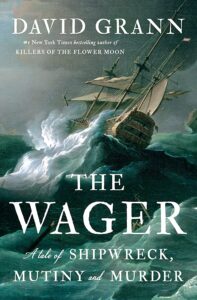
David Grann, The Wager: A Tale of Shipwreck, Mutiny and Murder
Doubleday, April 18
Grann is not only a meticulous researcher, but a brilliant storyteller too. In The Wager, we get a wild tale of shipwrecks, mutiny, and court marital; its lessons—about how people tell stories, and who to believe—are eerily prescient today. In 1742, thirty emaciated sailors—survivors of a ship that left England two years before and had wrecked on a desolate island off the coast of Patagonia—wash up on the coast of Brazil. Then, six months later, another boat lands off the coast of Chile with three castaways—and their story is very different. They claim the thirty sailors are actually mutineers. The first group accuses the new arrivals as murderous senior officers. A court martial is called to determine the truth. Grann pulls the story together from archival materials, diaries, and court documents (he even traveled to the island where the sailors were marooned), all to get to the truth. But whose truth matters most depends on who has the best story to tell. –EF
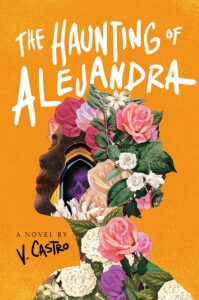
V. Castro, The Haunting of Alejandra
Del Rey, April 18
V. Castro’s heroine is haunted by the spirit of La Llorena—or, at least, an ancient evil that has found a way to embody a folk legend. She must go to a curandera and process her personal and generational trauma before she can even hope to be free of the demon possessing her, in what also functions as a perfect metaphor for clearing the fog of depression and seeing the societal structures and history that contribute to our present-day malaise. –MO
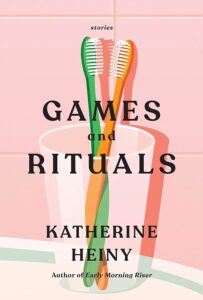
Katherine Heiny, Games and Rituals
Knopf, April 18
Katherine Heiny’s Early Morning Riser was a delight and a balm, so I have high hopes for her latest story collection, which includes eleven stories of love in its myriad forms. I have a feeling I’ll be parceling them out to savor when I’m in need of literary pick-me-ups. –JG
Katy Simpson Smith, The Weeds
FSG, April 18
From the author of The Everlasting comes another centuries-spanning story, this time set in the (ruins/jungle of the) Roman Colosseum. In present day, a woman from Mississippi is remaking her life. In 1854, another woman is serving time (and longing for a lost love). Both women catalog the plant life of their surroundings, as Katy Simpson Smith muses on the constraints and choices of women trying simply to survive. –ES
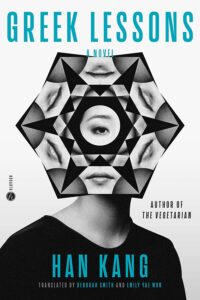
Han Kang, tr. Deborah Smith and Emily Yae Won, Greek Lessons
Hogarth, April 18
I still think about Han Kang’s beautiful and terrifying The Vegetarian, which won the International Booker Prize in 2016, all the time; if her latest novel—in which a woman who has lost her language and a man who is losing his sight find themselves drawn together—is half as good, it’ll be one of the best books of the year. –ET
Jonathan Kennedy, Pathogenesis: A History of the World in Eight Plagues
Crown, April 18
Plagues! As we close out Year III of our Covid-reshaped world, here comes a book about how the major transformations of the last sixty-thousand years have all been caused by similarly pesky germs. Professor Kennedy—drawing on the latest research in fields ranging from genetics and anthropology to archaeology and economics—explores eight major outbreaks of infectious disease across the entire history of civilization, from the Neanderthal era to the rise of the US as a global superpower, to challenge “some of the most fundamental assumptions about our collective past.” It’s not often you pick up a book that promises to alter your entire understanding of the story of humanity. –DS
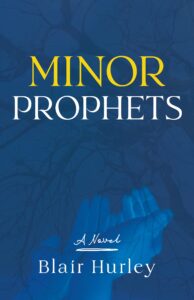
Blair Hurley, Minor Prophets
Ig Publishing, April 18
In Hurley’s captivating second novel, after 2018’s The Devoted, Nora is working in hospice care in Chicago when she receives a mysterious message that makes her peer back into her past, only to discover that her father, who—with her help—led an apocalyptic religious cult in Michigan’s Upper Peninsula, has died mysteriously by gunshot. What follows is the story of her childhood, speaking in tongues and prophecies for her father’s growing congregation, and the spiral into madness, and in the book’s harrowing conclusion, at last, the true story of what happened the night she escaped, and the night her father died. –ET

Lucinda Williams, Don’t Tell Anybody the Secrets I Told You
Crown, April 25
What more needs to be said? It’s Lucinda Williams’ autobiography, people! This is the kind of memoir I didn’t even know I was waiting for, but as one of the many millions of fans awestruck and captivated by Williams’ music, lyrics, and general badass vibe, I am now counting down the days till the book is in my hands. I’ve inhaled every interview with Williams I’ve come across: she is that rare entity of a true, honest-to-god, outlaw country star. She came from almost nothing, built her way up playing in dive bars, brushed shoulders with other country greats like Townes Van Zandt, Blaze Foley, and is still around to not only tell the tale, but continues to perform and release new music. I for one cannot wait to hear the tale, and any secrets she’s kept for this long; what a gift to get a peek behind the scenes on a life and legacy such as hers. –JH
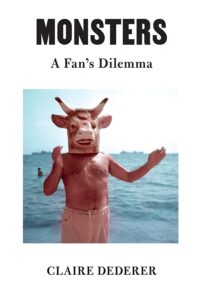
Claire Dederer, Monsters: A Fan’s Dilemma
Knopf, April 25
In this very personal work of cultural criticism, Dederer expands on her excellent 2017 Paris Review essay about how to think about the work of monstrous men, which opens with uncertainty. “They did or said something awful, and made something great. The awful thing disrupts the great work; we can’t watch or listen to or read the great work without remembering the awful thing. Flooded with knowledge of the maker’s monstrousness, we turn away, overcome by disgust. Or … we don’t. We continue watching, separating or trying to separate the artist from the art. Either way: disruption. They are monster geniuses, and I don’t know what to do about them.” Me either, but I would like to find out. –ET
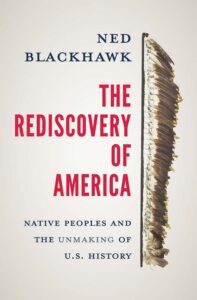
Ned Blackhawk, The Rediscovery of America: Native Peoples and the Unmaking of U.S. History
Yale University Press, April 25
It is not at all controversial (unless you sit on a Florida school board) to state that the overarching narrative of American history is anchored in white supremacist settler-colonial mythologies created in the service of empire. I’m sorry but it’s not! In the important tradition of corrective histories like Bury My Heart at Wounded Knee, Blackhawk (Western Shoshone) addresses five centuries of historical blank space, retelling the story of America’s birth from the perspective of those embattled Indigenous nations who fought—and keep fighting—to maintain some semblance of their ancestral ways of life. –JD
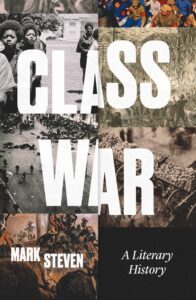
Mark Steven, Class War: A Literary History
Verso, April 25
A survey of the literature of revolution, Mark Steven’s history of global class war considers work by writers from Byron to Assata Shakur. It feels more crucial than ever to study the work of writers who practiced solidarity, and this book promised to be a vital contribution to the revolutionary canon. –JG
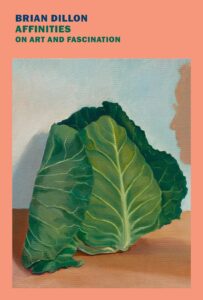
Brian Dillon, Affinities: On Art and Fascination
NYRB, April 25
The third book in Dillon’s trilogy of close reading, after Essayism and Suppose a Sentence, shifts from text to image, analyzing the pleasures of art and looking, and also the pleasure of that particular feeling of connection we call affinity. Sure to be another satisfying installment of Dillon’s blend of personal reflection and highly specific arts criticism. –ET
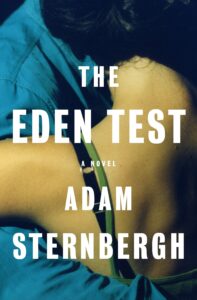
Adam Sternbergh, The Eden Test
Flatiron, April 25
Daisy and Craig’s marriage is in trouble: they both have been harboring secrets, and it seems clear that Craig is planning to leave Daisy for another woman. Daisy finds out about “The Eden Test”, a week-long cabin retreat that promises to deliver struggling married couples a fresh start, and decides it’s now or never for her and Craig. The couple gets more than they bargained for at the retreat however: each day a new question is posed of them that scrapes up more lies and confessions than they thought possible. Will Craig and Daisy make it out of this week with their relationship intact—or will they make it out at all? –JH









